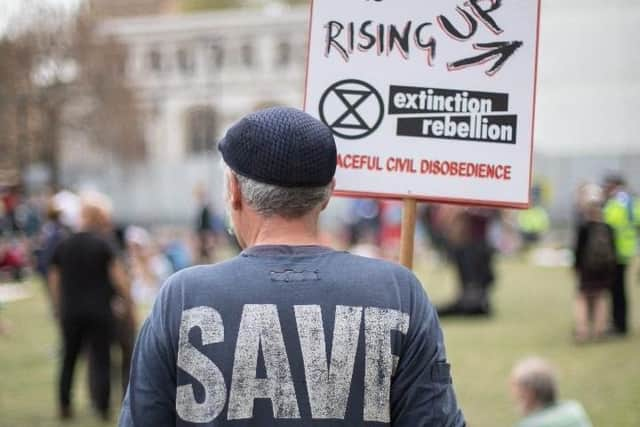Political Opinion: We need to talk about Net Zero, by Andrew Lewer MP
and live on Freeview channel 276
A recent National Infrastructure Commission report has warned Government about increased vulnerability to power cuts caused by storms, as well as potential disruptions in electricity supplies due to low wind, highlight the need for a more realistic approach. Some targets, especially arbitrary ones, can be harmful and self-defeating: We need a prudent assessment of our transition journey.
The Climate Change Act 2008 (2050 Target Amendment) Order 2019 legally binds the UK to achieve 100% net zero emissions, yet its passage through Parliament was swift, with minimal debate and no vote. At that time, the nation's focus was primarily on Brexit and then the global pandemic of COVID-19. Such jaw-dropping impacts emanating from this obscure statutory instrument requires, not just further careful consideration, but a full and open national discussion above and beyond the messianic proselytisers of the doomsday cult environmentalists like Just for Oil and Extinction Rebellion.While the UK contributes only 1% of global CO2 emissions, it is being subjected to some of the most ambitious and far-reaching changes since the industrial revolution. A more sensible timeline for transitioning to clean energy is needed, recognising the crucial role of oil and gas in the interim. This needs to be part of a national debate.
Advertisement
Hide AdAdvertisement
Hide AdNew realities in the world - making it a more dangerous place for all of us - demand a shift from an overreliance on efficiency in both supply chains and in energy policy to a focus instead on resilience. This perspective contradicts the concept of a legally binding net zero policy, which imposes strict and inflexible targets within a relatively short timeframe. Instead, we should adopt a longer-term vision, perhaps allowing for a century of transformation rather than a rushed quarter-century.


Amid these unprecedented times, a pragmatic approach is necessary. We must carefully consider the long-term implications of policies aimed at achieving net zero emissions. The warnings from the National Infrastructure Commission should not be taken lightly, as they highlight potential vulnerabilities and risks associated with a hasty transition to clean energy. Energy security and resilience must be prioritised alongside the decarbonization efforts. We have seen bad energy policy at play before.
Government is the last organisation to place bets on new technologies. A good example of this was Gordon Brown’s policy to transition motorists away from petrol engines to diesel. It was a costly failure. Great technological breakthroughs were made in the development of the power and efficiency of small diesel engines (Peugeot led the way globally), but in the end it was for nothing after policy makers had a re-examination of the evidence, leading to a strong move away from diesel.
We are racing ahead again with the Government betting on fully electric vehicles as the future when there is not the charging infrastructure to meet the need. Even if it gets anywhere near the charging infrastructure in place, we still do not have the electric generating capacity to meet the ever-soaring demand. It could cripple our economy.
Advertisement
Hide AdAdvertisement
Hide AdWhile the transition to clean energy is undeniably crucial, a legally binding net zero target by 2050 may just prove a giant folly and the impositions along the way, such as a ban on internal combustion engine sales by 2030, even more so. The UK's energy policies need to strike a balance between environmental sustainability and the nation's energy security. Careful consideration and a more realistic approach are essential for long-term success. This is now the time for you to start the debate and ask the difficult questions.